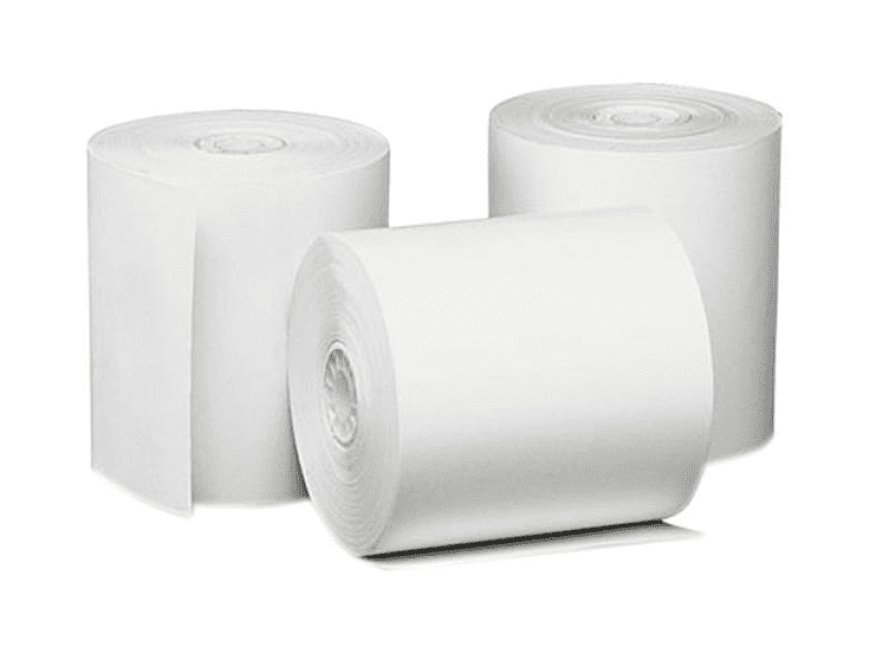The Environmental Impact of Thermal Paper Roll Distributor
The rise of thermal paper roll distributors has transformed how businesses manage their receipt printing needs

The rise of thermal paper roll distributors has transformed how businesses manage their receipt printing needs. From retail to healthcare and hospitality, thermal paper has become indispensable due to its efficiency and cost-effectiveness. However, the environmental impact of thermal paper roll distribution is a growing concern that necessitates a closer examination of sustainability practices within the industry. This article explores the ecological footprint of thermal paper production and distribution, focusing on the role of thermal paper roll distributors and how they can adopt eco-friendly measures.
The Growing Demand for Thermal Paper Rolls
Thermal paper rolls are used in point-of-sale (POS) systems, ATMs, ticketing machines, and medical equipment. The global demand for thermal paper continues to rise as businesses prioritize fast and reliable printing solutions. Thermal paper roll distributors play a crucial role in supplying this demand by ensuring that high-quality paper rolls reach businesses efficiently.
However, this increasing reliance comes with environmental consequences. The production of thermal paper involves the use of chemicals, including Bisphenol A (BPA) or Bisphenol S (BPS), which are known to pose health and environmental risks. Moreover, the manufacturing and distribution processes contribute to deforestation, energy consumption, and carbon emissions.
Key Environmental Concerns in Thermal Paper Distribution
-
Chemical Use in Thermal Paper Traditional thermal paper contains BPA or BPS as developers, which enable the printing process without ink. While effective, these chemicals are harmful when released into the environment. BPA, in particular, is linked to endocrine disruption in humans and wildlife.
-
Deforestation and Raw Material Extraction Thermal paper production relies heavily on wood pulp, contributing to deforestation and habitat loss. Distributors that source paper rolls from unsustainable suppliers indirectly contribute to these environmental issues.
-
Carbon Footprint of Distribution Networks Transporting thermal paper rolls from manufacturers to distributors and then to businesses involves significant fuel consumption. This logistical chain adds to greenhouse gas emissions, exacerbating climate change.
-
Waste Management Challenges Thermal paper is often non-recyclable due to its chemical coating, leading to landfill accumulation. Distributors that fail to promote recycling or proper disposal contribute to environmental degradation.
How Thermal Paper Roll Distributors Can Reduce Their Environmental Impact
To address these challenges, thermal paper roll distributors must adopt sustainable practices throughout their operations. Here are some actionable steps:
-
Partner with Eco-Friendly Manufacturers Distributors should source thermal paper rolls from manufacturers that use BPA-free or BPS-free alternatives. These safer options reduce health risks and environmental contamination. Some manufacturers also offer phenol-free thermal paper, which is a completely non-toxic solution.
-
Promote Recyclable Thermal Paper Encouraging the use of recyclable thermal paper can significantly reduce waste. Distributors should educate their clients on proper recycling practices and offer products that meet recyclability standards.
-
Adopt Sustainable Packaging Using biodegradable or recyclable packaging materials for thermal paper rolls can minimize plastic waste. Bulk packaging options can further reduce the environmental footprint of shipping.
-
Optimize Logistics for Lower Emissions Distributors can optimize their supply chains by consolidating shipments, using energy-efficient vehicles, or partnering with green logistics providers. These measures help reduce fuel consumption and carbon emissions.
-
Certify Environmental Compliance Thermal paper roll distributors can obtain certifications such as FSC (Forest Stewardship Council) or PEFC (Programme for the Endorsement of Forest Certification) to demonstrate their commitment to sustainable sourcing.
-
Raise Awareness Among Clients Educating businesses about the environmental impact of thermal paper and offering eco-friendly alternatives can drive demand for sustainable products. Distributors can position themselves as leaders in the green initiative by aligning their goals with environmental priorities.
The Business Benefits of Going Green
Adopting sustainable practices not only benefits the environment but also enhances the reputation and competitiveness of thermal paper roll distributors. Businesses are increasingly seeking suppliers that align with their sustainability goals. By offering eco-friendly products and services, distributors can:
-
Attract Eco-Conscious Clients: Many companies prioritize environmental responsibility and prefer working with sustainable suppliers.
-
Comply with Regulatory Standards: Stricter environmental regulations are being enforced globally. Sustainable practices ensure compliance and reduce the risk of penalties.
-
Improve Brand Image: Demonstrating a commitment to sustainability enhances credibility and customer loyalty.
-
Reduce Operational Costs: Optimizing logistics and adopting energy-efficient practices can lead to cost savings in the long term.
Future Trends in Sustainable Thermal Paper Distribution
The thermal paper industry is evolving to address environmental concerns. Innovations such as phenol-free thermal paper and alternative printing technologies are gaining traction. Thermal paper roll distributors have the opportunity to lead this transformation by staying ahead of trends and embracing sustainable innovations.
Furthermore, digital receipts and paperless transaction solutions are emerging as viable alternatives. While this shift may reduce the demand for thermal paper, distributors can adapt by diversifying their product offerings to include digital solutions.
Conclusion
The environmental impact of thermal paper roll distributors is a pressing issue that requires immediate attention. By adopting sustainable sourcing, promoting eco-friendly products, and optimizing logistics, thermal paper roll distributors can significantly reduce their ecological footprint. As businesses and consumers become more environmentally conscious, distributors that prioritize sustainability will not only contribute to a healthier planet but also secure a competitive edge in the market. The path to a greener future starts with proactive measures and a commitment to change.

 kaylaphilip
kaylaphilip